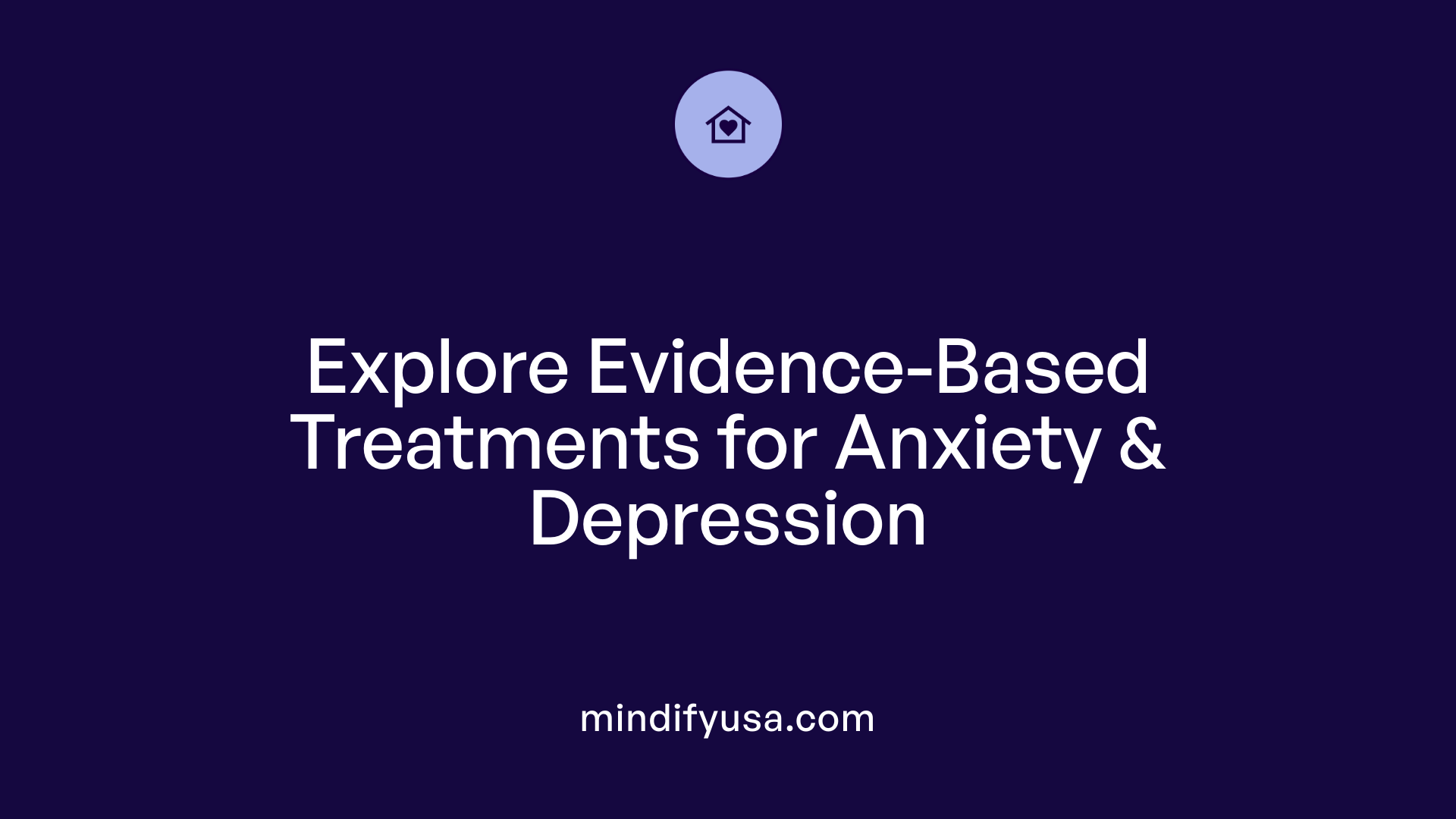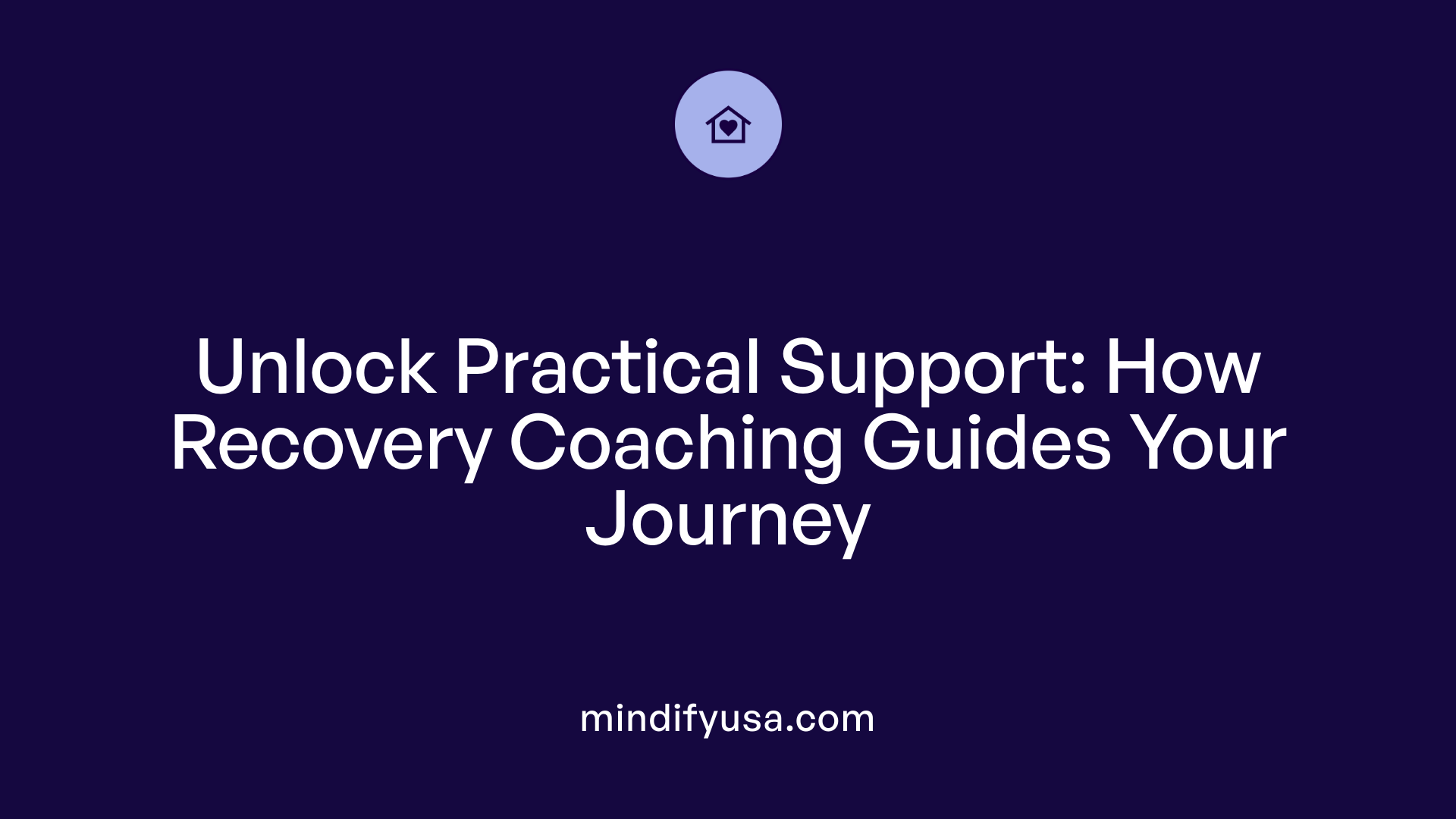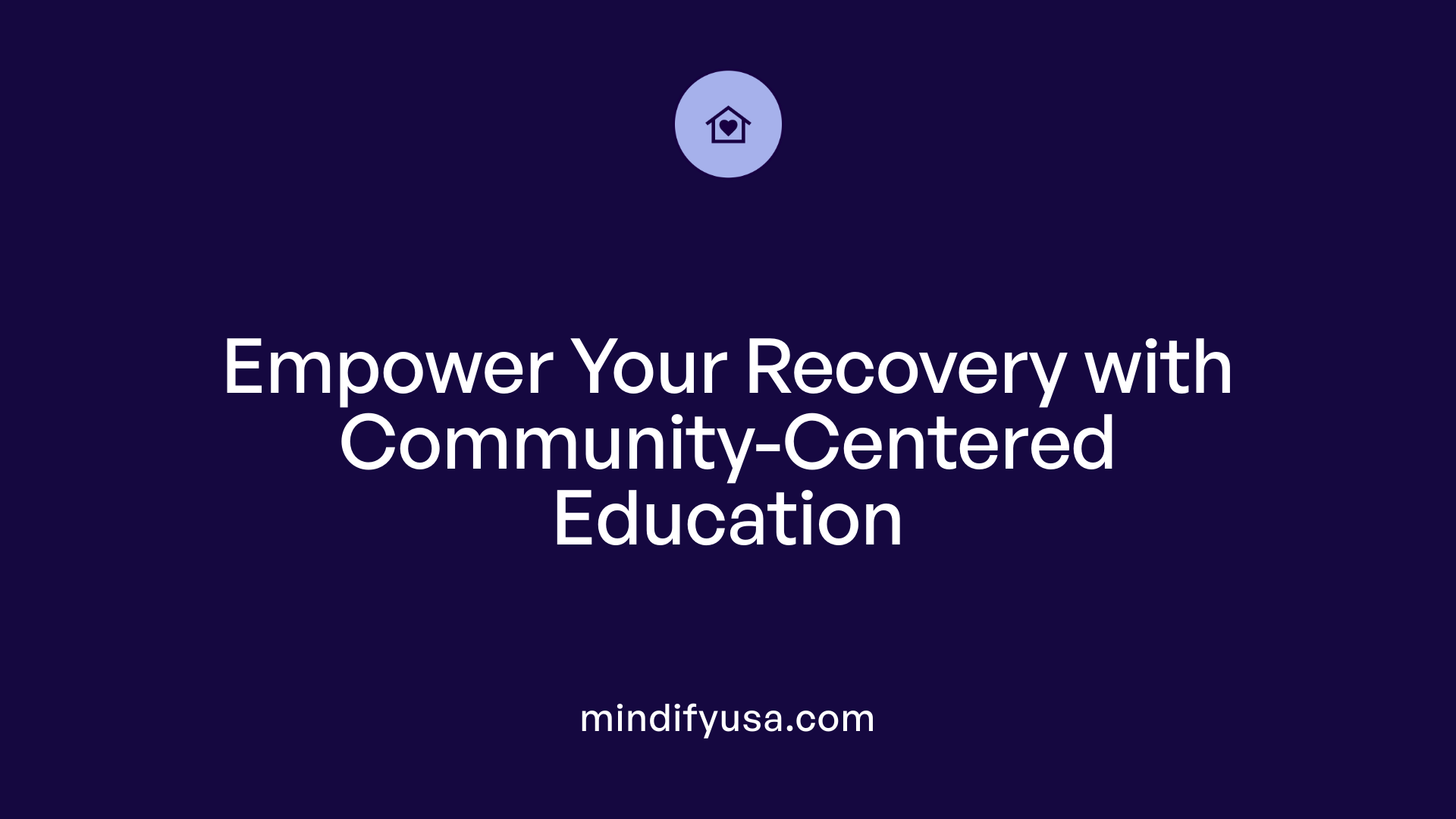Understanding the Role of Recovery Coaching in Mental Health
Managing anxiety during significant life transitions can be challenging, but recovery coaching offers a practical and supportive approach to help individuals build resilience and maintain mental wellness. This article explores recovery coaching's unique place alongside traditional mental health services and how it empowers people during periods of change.
Comprehensive Mental Health Services for Anxiety and Depression

What types of mental health services are available for anxiety and depression?
Mental health services for anxiety and depression cover a broad spectrum, incorporating psychotherapies, medication, crisis support, and lifestyle interventions. Evidence-based psychotherapies include cognitive-behavioral therapy (CBT), acceptance and commitment therapy (ACT), and trauma-focused approaches such as Eye Movement Desensitization and Reprocessing (EMDR) and Cognitive Processing Therapy (CPT). These therapies are widely supported by clinical research for their effectiveness in reducing symptoms and improving coping skills.
Medication options commonly include antidepressants, buspirone, and beta-blockers. These medications can alleviate symptoms and are often combined with therapy for comprehensive care. Alongside formal treatments, support groups, counseling, and guided self-help programs offer practical ways to develop resilience and self-management strategies.
Crisis support is a critical element, with services such as the 988 Suicide & Crisis Lifeline providing immediate assistance during acute episodes. This safety net ensures that individuals in crisis have access to prompt help.
Lifestyle changes and social support are fundamental for long-term recovery. Early intervention by healthcare professionals, along with community-based programs like Recovery Colleges and blended care coaching, suit diverse individual needs by promoting empowerment, hope, and skill-building.
Evidence-based psychotherapies
- Cognitive-Behavioral Therapy (CBT): Targets negative thought patterns to change behaviors.
- Acceptance and Commitment Therapy (ACT): Encourages acceptance of thoughts and feelings while committing to personal values.
- Trauma-Focused Therapies (EMDR, CPT): Designed to process traumatic memories and reduce their impact.
Medication and support options
- Antidepressants and anxiolytics help balance brain chemistry.
- Support groups and counseling offer peer engagement and emotional support.
- Guided self-help improves self-awareness and coping mechanisms.
Role of crisis support and lifestyle changes
- Crisis lines provide immediate access to help.
- Lifestyle changes, such as regular exercise, adequate sleep, and mindfulness, support symptom management.
- Social connections foster recovery and resilience.
This integrated approach ensures that treatment for anxiety and depression is accessible, responsive, and tailored to the individual's evolving needs.
Recovery Coaching: A Practical Support for Life Transitions
What Is Recovery Coaching and Its Purpose?
Recovery coaching is a professional support system designed to assist individuals through recovery journeys, particularly from addiction or mental health challenges. Unlike therapy, recovery coaches focus on practical, future-oriented guidance rather than diagnosing or treating mental health conditions. They help clients set achievable goals, develop action plans, and build healthy daily routines. Coaches provide accountability through regular check-ins and help identify triggers, supporting relapse prevention and long-term wellness.
How Does Recovery Coaching Support Life Transitions?
Life transitions such as career changes, relationship shifts, relocation, grief, or stage-of-life developments often bring emotional and mental challenges. Recovery coaching offers personalized mentoring during these periods by developing practical tools and coping strategies tailored to the individual's unique obstacles. For example, coaches assist in building self-confidence, managing negative self-talk, and creating structured schedules. This support empowers individuals to navigate change with resilience and maintain progress toward recovery goals.
How Is Recovery Coaching Different from Therapy?
Recovery coaching is distinct from therapy and counseling in several ways. While therapists diagnose and explore past experiences or psychological conditions, recovery coaches concentrate on present-day decisions and practical support. They do not provide mental health treatment but complement therapeutic efforts by focusing on motivation, accountability, and routine-building. Coaches often have lived experience, lending empathetic insights that enhance the mentorship relationship.
In What Settings and Formats Is Recovery Coaching Offered?
Recovery coaching is versatile and can be delivered in various settings including in-person meetings, phone conversations, or online sessions. This flexibility allows coaching to adapt to clients’ lifestyles and needs. Some coaches accompany clients to appointments or recovery meetings, providing additional support. The frequency is often tailored, commonly involving 2-3 sessions per week, ensuring consistent engagement to sustain recovery momentum.
| Aspect | Description | Notes |
|---|---|---|
| Purpose | Support recovery through goal-setting and practical tools | Focus on present and future |
| Role | Mentor, accountability partner | Not licensed therapists |
| Life Transitions Supported | Career, relationships, relocation, grief, life stage changes | Personalized coping strategies |
| Differences from Therapy | No diagnosis or mental health treatment; focuses on action plans | Complements therapy |
| Formats | In-person, phone, online, accompaniment to appointments | 2-3 sessions/week typical |
This practical and flexible approach makes recovery coaching a valuable resource for individuals facing life changes, helping them maintain momentum and resilience through the recovery process.
Core Functions and Unique Approach of Recovery Coaching

Supporting day-to-day decisions and healthy routines
Recovery coaching offers practical support by focusing on everyday choices that affect an individual's wellness. Unlike therapists, recovery coaches do not diagnose or treat mental health issues; instead, they help clients develop healthy daily routines and coping strategies. This hands-on approach assists clients in navigating the challenges that arise during their recovery journey.
Goal-setting and action plans
A central function of recovery coaching is helping individuals set clear, achievable goals. Coaches work collaboratively with clients to create personalized action plans that target specific obstacles, such as building self-confidence or managing negative self-talk. These plans empower clients to take proactive steps toward sustaining recovery and improving overall well-being.
Accountability and motivation through regular check-ins
Recovery coaches provide consistent support by maintaining regular check-ins, often two to three times a week. These sessions serve to monitor progress, identify potential triggers, and maintain motivation. Accountability fosters a sense of responsibility and keeps clients engaged with their recovery goals, which is critical for long-term success.
Focus on practical and future-oriented support
Being future-focused, recovery coaching emphasizes practical strategies over analyzing past experiences. Coaches help individuals explore options beyond traditional treatment paths, tailor flexible recovery plans based on personal goals, and build the skills necessary to maintain stability and wellness. This forward-thinking approach complements other therapies and recovery supports, enhancing resilience and promoting sustained growth.
Recovery Coaching and Its Role in Relapse Prevention and Harm Reduction
Identifying Triggers and Reducing Relapse Duration
Recovery coaching plays a vital role in relapse prevention by helping individuals recognize their personal triggers, which can spark relapse episodes. By identifying these triggers early, clients can develop practical strategies to manage or avoid them, effectively reducing both the likelihood and the length of relapse periods. Regular interactions with a recovery coach provide ongoing accountability and create an environment that encourages consistent progress.
Harm Reduction Approach and Flexible Recovery Plans
A central principle embraced by recovery coaches is harm reduction, which supports flexibility in recovery planning. This approach respects individual goals and circumstances, allowing customized and realistic recovery paths rather than rigid expectations. Such flexibility fosters sustained engagement and empowers clients to take ownership of their recovery journey.
Complementing Therapy and Promoting Long-Term Stability
While recovery coaches are not licensed therapists and do not provide mental health diagnoses or treatment, they work best as part of an integrated support system alongside therapy. Recovery coaching focuses on practical day-to-day decision-making, building healthy habits, and offering emotional support that promotes long-term wellness and stability. This complementary relationship ensures that clients receive holistic care addressing both clinical and recovery-oriented needs.
Blended Care Coaching for Reducing Anxiety and Depression Symptoms

How Does Blended Care Coaching Integrate Digital Lessons and Personalized Coaching?
Blended Care Coaching (BCC) combines digital video lessons and exercises with live video conferencing coaching sessions. This integration offers clients an accessible and flexible mental health support system, blending self-paced education with real-time, personalized guidance. The combination aims to enhance understanding and application of cognitive-behavioral techniques for managing anxiety and depression.
What Evidence Supports Its Effectiveness in Symptom Reduction?
Clinical evaluations using standard scales such as the GAD-7 (anxiety) and PHQ-9 (depression) reveal substantial improvements among BCC clients. Approximately 75.9% of participants exhibited reliable symptom improvement, and 88.6% achieved criteria for recovery after completing the program. These figures highlight BCC's significant impact in reducing anxiety and depression symptoms.
Why Is Early Engagement and Continuous Support Important?
Clients tend to experience the steepest decline in symptoms during the initial weeks of coaching, emphasizing early engagement's crucial role. Moreover, ongoing coaching sessions contribute to continual reductions in anxiety and depression symptoms week by week. Regular interaction provides accountability and reinforces behavioral changes, making sustained support vital for lasting mental health benefits.
Recovery College Model: Education and Empowerment in Mental Health

How does co-production with individuals with lived experience influence Recovery Colleges?
Recovery College models are uniquely designed through co-production, involving individuals who have firsthand experience with mental health challenges. This collaboration ensures that courses are both relevant and sensitive to the needs of participants, fostering an environment of trust and authentic connection.
How do Recovery Colleges enhance hope, self-management, and recovery knowledge?
Educational courses offered focus on recovery principles and self-care strategies coupled with individual coaching. This combination supports participants in building resilience and making positive life changes. Participants gain tools for understanding their illness, developing recovery knowledge, and improving self-management skills, leading to increased empowerment.
What improvements have participant questionnaires validated?
Data collected from pre- and post-course questionnaires indicate that 94% of participants reported feeling more hopeful after completing the program. Additionally, 91% experienced greater knowledge and self-awareness. All students showed progress toward personal recovery goals, highlighting the effectiveness of this educational approach.
How does the Recovery College model represent a community-based approach transforming mental health care?
By promoting shared learning, self-management, and peer support, Recovery Colleges build a sense of hope, empowerment, and connectedness—elements vital for recovery. This community-centered model acts as a 'disruptive innovation,' broadening knowledge access and encouraging active participation. Studies have shown that graduates reduce their reliance on secondary mental health services while increasing engagement in work, education, or occupation, signaling a transformative impact on traditional mental health care systems.
Life Coaching Therapy: Building Resilience Through Transitions

Understanding Emotions and Developing Coping Strategies
Life coaching therapy helps individuals gain insight into their emotions, fostering healthier ways to manage stress and challenges. By developing practical coping strategies, people can navigate difficult changes with more confidence and strength.
Common Life Transitions Benefiting from Therapy
Transitions such as career shifts, relationship changes, relocations, grief or loss, and various stage-of-life developments are prime opportunities where life coaching therapy proves especially helpful. These changes often provoke emotional and mental stress that coaching can help address.
Structured and Tailored Support for Clarity, Confidence, and Goal-Setting
Life coaching therapy offers a structured space tailored to each person’s needs, providing clarity and perspective on their experiences. Therapists guide clients in building emotional resilience and confidence, making tough decisions easier, and setting goals aligned with their individual values and circumstances. This personalized support promotes positive life changes and sustained well-being.
Choosing and Working With a Recovery Coach
Why is it important to select coaches with appropriate experience and rapport?
Choosing a recovery coach with relevant experience and a good personal connection is essential for effective support. Many recovery coaches have faced similar challenges and are often in recovery themselves, offering empathetic insight that resonates with clients. Since recovery coaching is not standardized or regulated in the U.S., establishing trust and comfort with your coach ensures a stronger partnership and more meaningful progress.
What does it mean that recovery coaches are not licensed therapists?
Recovery coaches are trained professionals who provide practical, future-focused support but are not licensed therapists and do not diagnose or treat mental health conditions. Their role is to help with day-to-day decisions, build healthy routines, and maintain motivation through accountability rather than analyzing past experiences or providing clinical treatment.
How can recovery coaching collaborate with therapy for comprehensive care?
Recovery coaches often work alongside licensed therapists to create a comprehensive care system. While therapists address clinical mental health needs, coaches focus on practical tools like developing coping strategies, managing triggers, and setting actionable goals, complementing therapy and enhancing long-term recovery stability.
In what formats is recovery coaching offered?
Recovery coaching is flexible and accessible, available through various formats including in-person meetings, phone calls, and online sessions. This adaptability allows clients to choose options that best fit their lifestyles and preferences, increasing engagement and consistency in support. Coaches may also accompany clients to appointments or recovery meetings as part of their ongoing support.
The Promise of Recovery Coaching in Managing Anxiety During Change
Recovery coaching emerges as a valuable complement to traditional mental health services, offering personalized, practical support that empowers individuals during life's transitions. Through targeted goal-setting, accountability, and coping skill development, recovery coaching helps lessen anxiety and foster resilience. When integrated with therapy and community resources such as Recovery Colleges, it contributes to a holistic approach that addresses the varied needs of people managing anxiety and depression. Choosing the right coach and embracing this model can promote hope, self-management, and lasting mental wellness as individuals navigate change.
References
- Coaching for recovery: a quality improvement project in ...
- Outcomes of a Blended Care Coaching Program for Clients ...
- How Life Coaching Therapy Can Help You through Life ...
- The Benefits of a Recovery Coach
- What Is a Recovery Coach? How They Differ from Therapists ...
- Home | SAMHSA - Substance Abuse and Mental Health ...
- Different Types of Mental Health Therapies





































































































